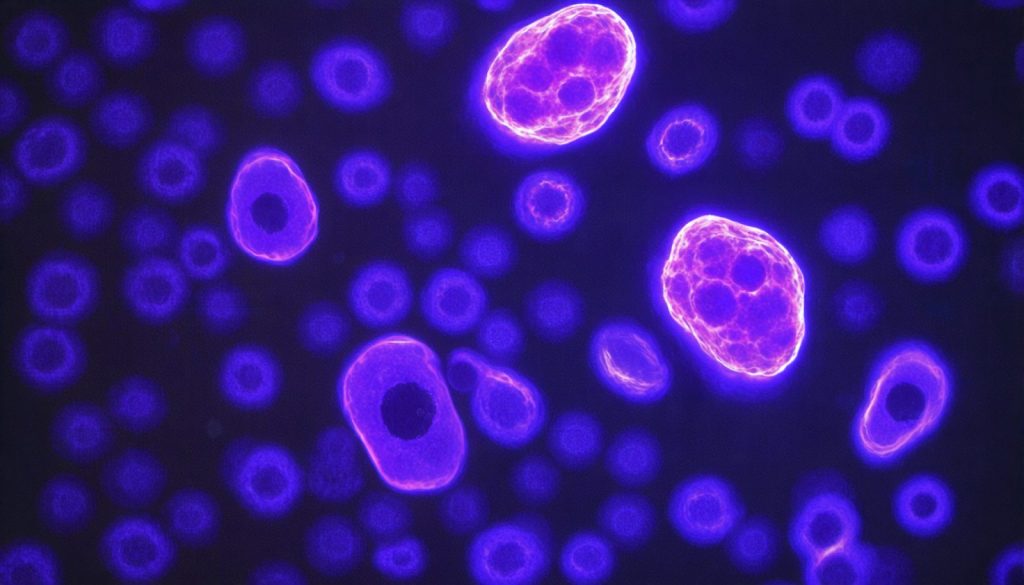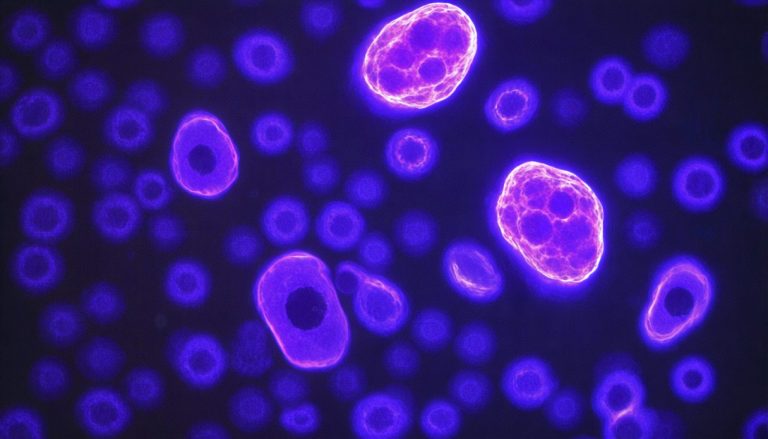
- Tahoe 100M by Tahoe Therapeutics is a groundbreaking open-source dataset with 100 million single-cell data points from 60,000 experiments, covering 1,100 drug treatments across 50 cancer types.
- It offers detailed single-cell transcriptomics profiles, enhancing understanding of gene expressions and drug responses in cancer cells.
- The innovative Mosaic Platform enables high-throughput testing across multiple cancer types, with up to 20,000 gene measurements per assay.
- The collaboration with the Arc Institute has produced the Arc Virtual Cell Atlas, a comprehensive public database rapidly adopted by researchers.
- The dataset aids AI-driven research, potentially revolutionizing drug discovery and treatment personalization through early patient stratification and in silico screening.
- Tahoe 100M exemplifies open data sharing, promoting collaboration and rapid drug development as part of an “internet of biology.”
- This initiative paves the way for innovative, AI-first approaches to conquer cancer, highlighting the transformative power of open-source solutions.
A transformative leap in the world of cancer research has emerged with the release of “Tahoe 100M” by Tahoe Therapeutics, a colossal dataset poised to accelerate the discovery of new cancer treatments. This open-source treasure trove offers an unprecedented 100 million single-cell data points derived from 60,000 experiments, spotlighting 1,100 drug treatments across 50 cancer types.
With this massive data repository, researchers can delve into the intricate behaviors of individual tumor cells. Tahoe 100M houses “single cell transcriptomics profiles,” providing a detailed map of gene expressions and drug responses. These profiles paint a vivid portrait of cellular reactions, facilitating a granular understanding of cancer cell dynamics.
Harnessing Tahoe’s innovative “Mosaic Platform,” this dataset offers unparalleled cellular granularity—delivering up to 20,000 gene measurements per assay. Tahoe’s technology simulates a “mosaic tumor,” enabling drug testing across multiple cancer types concurrently at high throughput. This approach bolsters Tahoe 100M’s practical utility, making it a precious resource for researchers and AI modelers.
The collaboration between Tahoe Therapeutics and the Arc Institute has birthed the Arc Virtual Cell Atlas, the most comprehensive public database of single-cell transcriptomic data available across various perturbations. Its swift adoption—evident from nearly 11,000 downloads in the past month—signifies its critical role in advancing AI-driven biomedical research.
Tahoe 100M, alongside AI breakthroughs like AlphaFold 3, is set to navigate the complexities of patient biology. Dr. Nima Alidoust, Tahoe’s CEO, emphasizes its potential in predicting drug interactions across diverse populations, marking it as a crucial player in revolutionary “AI-first” approaches to drug discovery.
The dataset has sparked excitement among AI experts like Dr. Bo Wang, who pioneered the application of large language models to analyze single-cell data. He envisions Tahoe 100M as a powerful tool to enhance the accuracy of AI models for early patient stratification and in silico screening, which could revolutionize treatment personalization.
Tahoe’s contribution sets a precedent for open data sharing in cancer research. By offering high-quality, large-scale data freely, they are forging a path toward a more collaborative scientific community. This initiative could herald an “internet of biology,” integrating cellular insights with rapid drug development to unearth new cancer vulnerabilities.
Tahoe 100M is not just an advancement; it’s a call to embrace open-source solutions, igniting a momentum that could redefine cancer treatment discovery, blending collective intellect with technological prowess to conquer one of humanity’s most formidable adversaries.
Unlocking the Future of Cancer Treatment: How Tahoe 100M Is Revolutionizing Research
In-Depth Exploration of Tahoe 100M: A Game-Changer in Cancer Research
Tahoe Therapeutics’ release of the “Tahoe 100M” dataset is a monumental step forward in cancer research, but there’s so much more to unpack about its impact and potential uses. Here, we’ll delve deeper into the specifics and explore how this vast repository of data could change the landscape of cancer treatment and drug development.
How-To Steps & Life Hacks for Using Tahoe 100M
1. Access the Data: Researchers need to register on the Tahoe Therapeutics site to download and access the data. This ensures that there’s a trail of how the data is being used.
2. Leverage the Mosaic Platform: Utilize Tahoe’s Mosaic Platform’s capabilities to simulate mosaic tumors for drug testing. This allows vast scalability in testing various compounds against multiple cancer types.
3. Integrate AI Models: Implement AI models to analyze transcriptomic profiles for identifying potential drug interactions and patient stratifications. This approach can significantly enhance the precision of predictions.
Real-World Use Cases
– Personalized Medicine: By using AI to analyze individual cellular responses, researchers can develop more personalized treatment regimens. This customization could significantly improve patient outcomes.
– Rapid Drug Discovery: Tahoe 100M expedites the identification of promising drug targets by providing detailed gene expression data, accelerating the process from discovery to clinical trial.
– Predictive Analytics: The dataset’s granularity enhances predictive analytics for patient responses to treatments, which is crucial for developing preventive measures and customized therapies.
Market Forecasts & Industry Trends
The trend towards open-source datasets like Tahoe 100M is set to transform the pharmaceutical landscape by:
– Reducing the cost and time associated with drug development.
– Encouraging cross-industry collaborations, given that accessible data promotes joint ventures in research and innovation.
– Increasing reliance on AI models for drug research, leading to enhanced treatment methodologies.
Controversies & Limitations
1. Data Security: Open data sharing poses risks concerning data security and privacy, especially with sensitive health-related data.
2. Bias in Data: The dataset’s applicability might be limited by underrepresentation of certain cancer types or minority populations in the original data collection.
3. Overreliance on AI: While AI opens new doors, misplaced reliance on AI models without adequate human oversight can lead to errors in predictions.
Insights & Predictions
– Future of AI in Medicine: AI’s role in medicine will grow, utilizing large datasets like Tahoe 100M to predict treatment outcomes more accurately.
– Collaborative Research: As a model for open data sharing, Tahoe 100M might inspire similar initiatives across other medical fields, fostering a collaborative research environment.
Actionable Recommendations
– For Researchers: Explore Tahoe 100M to identify novel drug targets. Pair its data with existing datasets for comprehensive research projects.
– For Clinicians: Stay informed about AI-driven tools that can analyze patient data to support treatment decisions based on insights gleaned from the dataset.
– For Institutions: Encourage partnerships with AI companies to expand capabilities in data analysis and enhance research outcomes.
For more information, you can visit the official Tahoe Therapeutics website.
By spotlighting the transformative potential of datasets like Tahoe 100M, we can harness collective intelligence and cutting-edge technology to push the boundaries of what’s possible in cancer treatment research.



